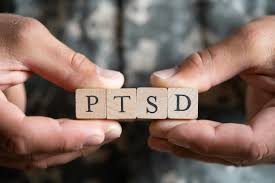Introduction

Trauma recovery is a crucial process for individuals who have experienced significant emotional reactions to accidents. Accidents can lead to profound psychological impacts, affecting every aspect of a person’s life. Understanding the need for psychological support after an accident is essential for effective recovery. Psychological trauma from accidents often manifests as anxiety, depression, or post-traumatic stress disorder (PTSD), which requires professional intervention for proper healing.
The importance of seeking psychological support after an accident cannot be overstated. Early intervention and appropriate therapy can make a significant difference in the recovery process, helping individuals regain their mental health and overall well-being. This article will delve into the various aspects of trauma recovery, exploring the types of psychological support available to accident victims. By understanding and utilizing these resources, individuals can begin their journey toward healing and rebuilding their lives.
Understanding Trauma
Trauma is a response to a deeply distressing or disturbing event that overwhelms an individual’s ability to cope. Accidents are a common cause of trauma, often leaving victims in a state of shock and helplessness. Psychological trauma can lead to long-term, mental health problems and issues, affecting a person’s emotional and physical well-being. The severity of trauma can vary based on the nature of the accident and the individual’s psychological resilience.
Accident trauma often triggers intense emotions such as fear, anger, and sadness. Understanding trauma involves recognizing these emotional responses and the potential for developing conditions like PTSD. Trauma recovery is not just about physical healing but also about addressing the psychological scars left behind by traumatic event. Effective psychological support after an accident can help individuals process their experiences and begin their journey toward recovery.
Immediate Psychological Impact of Accidents
Accidents can have a profound immediate psychological impact, often resulting in a state of shock and confusion. In the aftermath of an accident, individuals may experience acute stress reactions, characterized by heightened anxiety, intense fear itself, and disorientation. These immediate responses are the period of time body’s natural way of coping with a traumatic event. Understanding the psychological impact after an accident is crucial for early intervention and effective trauma recovery. Symptoms may include intrusive thoughts, flashbacks, and difficulty concentrating, all of which can disrupt daily functioning.
In addition to anxiety and fear, accident victims might also experience physical symptoms such as increased heart rate, sweating, and trembling. These are manifestations of the body’s fight-or-flight response. Psychological support after an accident is essential to help individuals process these immediate reactions and prevent the development of more severe conditions like PTSD. Early psychological intervention can significantly improve the long-term prognosis, aiding in a smoother transition from trauma to recovery.
Long-Term Effects of Trauma
The long-term effects of trauma from accidents can be profound and enduring. Many accident victims develop chronic psychological conditions such as post-traumatic stress disorder (PTSD), anxiety, and depression. These conditions can significantly impair daily functioning, making it difficult for individuals to return to their normal lives. Recognizing these long-term trauma effects is crucial for providing appropriate psychological support after an accident.
Symptoms of long-term trauma can include persistent feelings of fear, intrusive and painful memories, and avoidance of reminders of the accident. Early intervention and continuous psychological support are vital in managing these symptoms and promoting healing from trauma. Effective trauma recovery involves addressing these long-term effects through therapies such as cognitive-behavioral therapy (CBT) and other evidence-based treatments.
Symptoms of PTSD

Post-Traumatic Stress Disorder (PTSD) is a common long-term effect of experiencing a traumatic accident. Symptoms of PTSD can be pervasive and debilitating, significantly affecting an individual’s quality of life. Common symptoms include intrusive thoughts or memories of the accident, nightmares, and flashbacks that can make the trauma feel as if it is happening all over again. Victims may also experience severe anxiety, heightened alertness, and a persistent sense of danger.
In addition to these symptoms, individuals with PTSD often avoid situations or places that remind them of the accident, leading to social withdrawal and isolation. Emotional numbness, irritability, and difficulty concentrating are also prevalent symptoms. Recognizing these PTSD symptoms is crucial for providing appropriate psychological support after an accident. Early diagnosis and intervention of trauma symptoms can help manage these symptoms and facilitate a path toward effective trauma recovery, enabling individuals experiencing trauma to regain control over their lives.
Importance of Early Intervention
Early intervention is critical in trauma recovery, as it can prevent the development of more severe psychological conditions. Providing psychological support after an accident shortly a few weeks after the event can significantly reduce the risk of chronic PTSD and other long-term mental health issues. Immediate psychological care helps individuals process the trauma effectively and builds resilience against future stressors.
Healing from trauma is more effective when started early. Interventions such as counseling and therapy can address acute stress and reactions to trauma before they escalate into more severe symptoms. By seeking early psychological support, accident victims can enhance their recovery outcomes and achieve better mental health stability.
Types of Psychological Support

Accident victims have access to various types of mental health professional psychological support to aid in their recovery. One common form of support is individual counseling, where a trained therapist helps the individual process their trauma through talk therapy. This personalized approach allows for tailored treatment plans that address specific needs and symptoms. Psychological support after an accident also includes group therapy, where individuals can share experiences and gain support from others who have undergone similar traumas.
In addition to traditional counseling, trauma recovery often involves specialized therapies like cognitive-behavioral therapy (CBT) and eye movement desensitization and reprocessing (EMDR). These therapies are designed to target and alleviate the symptoms of PTSD and other trauma-related conditions. Psychological support may also incorporate holistic approaches, such as mindfulness and stress reduction techniques, which help individuals manage anxiety and improve overall well-being. These diverse types of psychological support are crucial for comprehensive trauma recovery.
Cognitive-Behavioral Therapy (CBT)
Cognitive-behavioral therapy (CBT) is a highly effective treatment for trauma recovery, particularly for those suffering from PTSD after a car accident. CBT helps individuals understand the connection between their thoughts, feelings, and behaviors, enabling them to develop healthier coping mechanisms. This form of therapy focuses on identifying and challenging negative thought patterns that contribute to anxiety and stress, promoting more positive and realistic thinking.
In the context of accident trauma, CBT often involves exposure therapy, where individuals gradually confront their trauma-related memories and fears in a safe and controlled environment. This process helps to desensitize them to the trauma and reduce avoidance behaviors. CBT sessions may also include techniques for managing anxiety, such as relaxation exercises and cognitive restructuring. By addressing the root causes of psychological distress, CBT provides comprehensive support for trauma recovery, making it a cornerstone of effective psychological support after an accident.
Eye Movement Desensitization and Reprocessing (EMDR)
Eye Movement Desensitization and Reprocessing (EMDR) is a specialized therapy designed to help individuals process and recover from trauma. EMDR is particularly effective for treating PTSD after a car accident. This therapy involves the patient recalling traumatic memories while simultaneously focusing on external stimuli, such as lateral eye movements or hand tapping. This dual attention process helps reprocess traumatic memories, reducing their emotional impact.
EMDR therapy typically progresses through eight phases, including history-taking, preparation, assessment, desensitization, installation, body scan, closure, and reevaluation. Each phase is tailored to ensure the patient’s safety and readiness to confront their trauma. EMDR has been shown to reduce symptoms of anxiety, distress, and avoidance behaviors associated with trauma. By incorporating EMDR into trauma recovery, accident victims can experience significant improvements in their psychological well-being and overall quality of life. This therapy offers a structured approach to healing from trauma and psychological support after an accident.
Mindfulness and Stress Reduction Techniques
Mindfulness and stress reduction techniques are valuable tools in trauma recovery, helping accident victims manage anxiety and improve their overall mental health. Mindfulness involves paying focused attention to the present moment, which can reduce the tendency to ruminate on traumatic memories. Practices such as deep breathing, meditation, and progressive muscle relaxation can significantly lower stress levels and promote a sense of calm and well-being.
Incorporating mindfulness into psychological support after an accident can enhance traditional therapeutic approaches like CBT and EMDR. These techniques help individuals develop greater awareness of their thoughts and feelings, allowing them to respond more effectively to stress and anxiety. By integrating mindfulness practices into their daily routine, trauma victims can achieve better emotional regulation and resilience. This holistic approach to trauma recovery supports both the mind and body, facilitating a more comprehensive healing process.
Support Groups and Peer Support
Support groups and peer support play a vital role in trauma recovery by providing a sense of community and shared understanding of traumatic experience. These groups offer a safe space for accident victims to share their experiences, gain insights, and receive emotional support from others who have undergone similar traumas. The collective wisdom and empathy found in these groups can be incredibly therapeutic.
Peer support group, can help reduce feelings of isolation and stigma often associated with trauma. Engaging in support groups allows individuals to learn coping strategies and build resilience. This communal form of psychological support after an accident is an invaluable component of comprehensive trauma recovery.
Role of Family and Friends
Family and friends play a crucial role in the trauma recovery process by providing emotional support and stability. Their understanding, patience, and encouragement can help accident victims feel less isolated and more connected. Emotional support from a trusted family member and loved ones can significantly enhance the effectiveness of psychological support after an accident.
Engaging family and friends in the recovery process also helps in identifying early signs of distress and facilitating timely intervention. Their support can motivate individuals to adhere to their treatment plans and engage in therapeutic activities. This collective approach fosters a supportive environment conducive to healing from trauma.
Integrating Physical and Psychological Healing
Integrating physical and psychological healing is essential for comprehensive trauma recovery. Addressing both aspects own recovery simultaneously ensures that accident victims receive holistic care, promoting overall well-being. Physical recovery often involves rehabilitation and medical treatment, while psychological support focuses on mental health trauma and emotional resilience.
This integrated approach recognizes the interconnectedness of mind and body. Effective psychological support after an accident includes therapies like CBT and mindfulness practices, complemented by physical therapies such as physiotherapy and exercise. This combined effort enhances the recovery process, helping individuals rebuild their lives more effectively and sustainably.
Challenges in Trauma Recovery

Trauma recovery often involves navigating numerous challenges that can impede progress. Common obstacles experienced trauma, include persistent PTSD symptoms, anxiety, and depression, and other mental health problems which can make it difficult for individuals to engage fully in their therapeutic process. Recognizing and addressing these challenges early is crucial for effective trauma recovery and psychological support after an accident.
Another significant challenge is overcoming avoidance behaviors, where individuals may steer clear of situations or memories that trigger their trauma. Developing healthy coping mechanisms and resilience through therapies like CBT and EMDR can help individuals confront and overcome these challenges, facilitating a smoother recovery journey.
Success Stories
Success stories of trauma recovery can offer hope and motivation to those currently struggling with the aftermath of an accident. For instance, Margaret McDonald has helped many individuals who experienced severe trauma from third-party motor vehicle accidents. Through personalized psychological support, including cognitive-behavioral therapy (CBT) and other evidence-based approaches, these individuals have managed to overcome significant psychological challenges, such as PTSD, anxiety, and depression.
One notable success story involves a client who initially struggled with severe anxiety and flashbacks following a motor vehicle accident. Through early intervention and consistent therapy sessions with Margaret McDonald, the client was able to process the trauma, reduce PTSD symptoms, and gradually return to a normal life. Another client benefited greatly from group therapy, finding strength and comfort in shared and experiencing traumatic events and experiences together. These success stories underscore the effectiveness of trauma recovery strategies and the importance of seeking psychological support after an accident. For more detailed information, visit Margaret McDonald Clinical Psychologist.
Resources for Trauma Victims
Numerous resources are available to support trauma victims on their path to recovery. These resources include organizations like Beyond Blue, which offers mental health support and information, and Lifeline, providing crisis support and suicide prevention services. Access to these resources can significantly enhance psychological support after an accident, ensuring individuals receive the necessary help and guidance.
Local community centers, online support groups, and professional counseling services, such as those offered by Margaret McDonald, are also invaluable. These resources provide a network of support, helping individuals navigate their trauma recovery journey. Comprehensive access to these resources ensures that trauma victims have the necessary tools and support systems to heal effectively.
Conclusion
In conclusion, the journey of trauma recovery is multifaceted, requiring comprehensive psychological support after an accident. Early intervention, diverse therapeutic approaches, and support systems are crucial for effective healing. Understanding trauma and its long-term effects, recognizing symptoms of PTSD, and integrating physical and other health professional psychological healing are essential steps in this process.
By utilizing resources such as both individual therapy and group therapy, mindfulness techniques, and support from family and friends, trauma victims can successfully navigate their recovery. The stories of those who have overcome their trauma highlight the importance of seeking professional psychological support and the possibility of reclaiming a fulfilling life after an accident.
If you or someone you love is struggling with the aftermath of an accident, know that you are not alone. Healing from trauma is a challenging journey, but with the right support, recovery is possible. Margaret McDonald offers compassionate and professional psychological support tailored to your needs. Take the first step towards reclaiming your life by visiting Margaret McDonald Clinical Psychologist. Let’s work together to find the path to healing and well-being. Your journey to recovery starts today.

